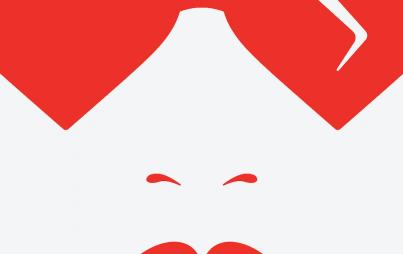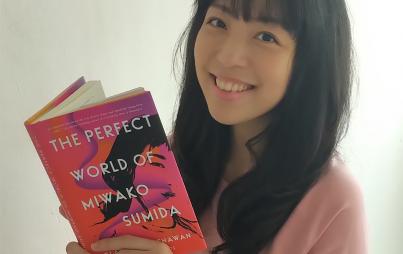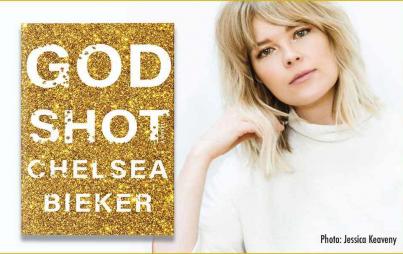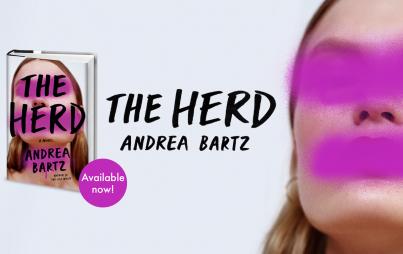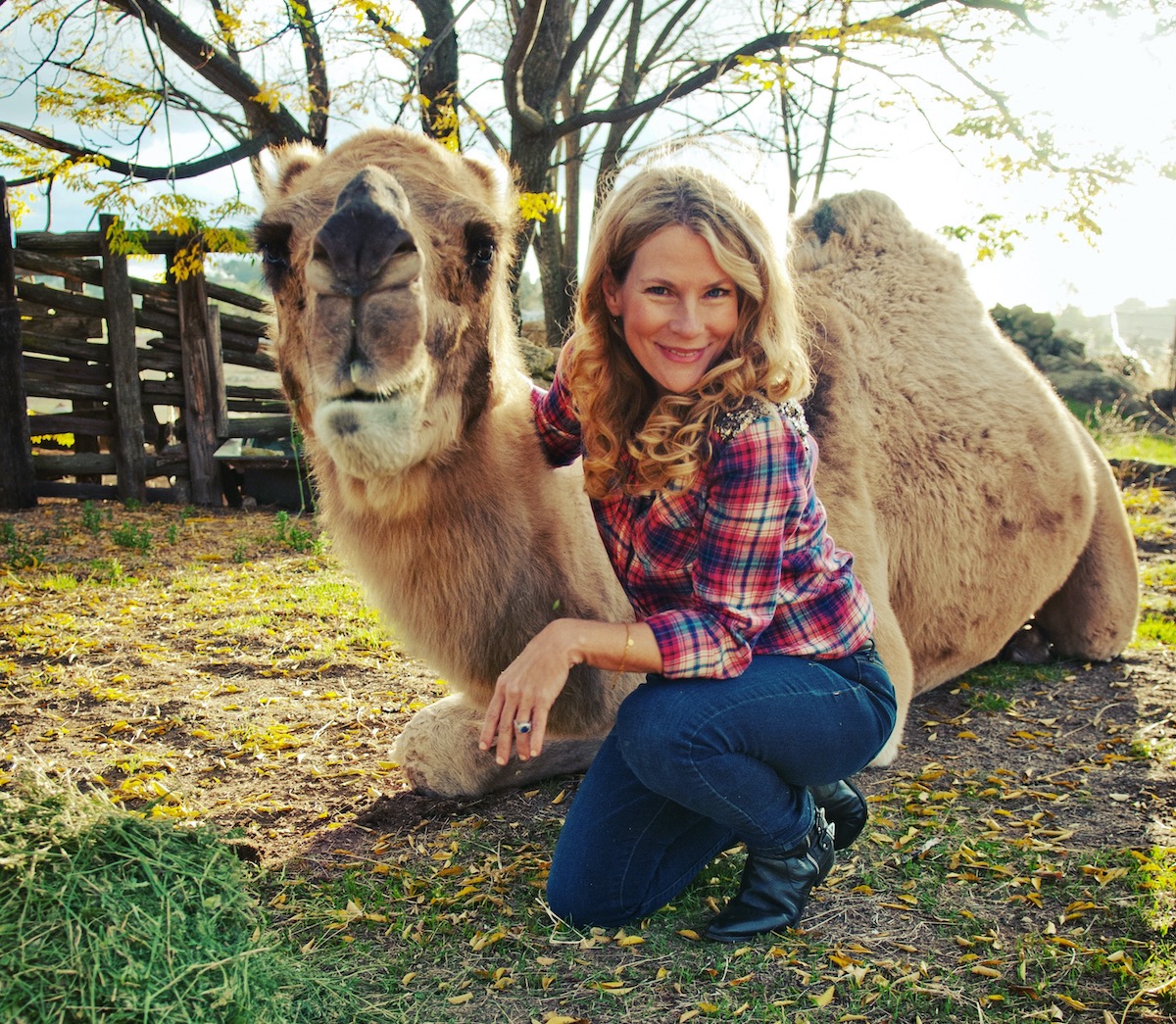
Camel Crazy author Christina Adams
Last month saw the release of a curious narrative/memoir, Camel Crazy: A Quest for Miracles in the Mysterious World of Camels, by award-winning journalist and memoirist, Christina Adams. The book has a scientific medical mystery-feel with a dash of international treasure hunt thrown in for good measure. The treasure, in this case, is camel milk, which the author believed her son, who is on the autism spectrum, could benefit from. On a hunch, Christina fearlessly dove into the world of camels when there was no information available in California where she and her son lived. Exploring the cultural and scientific importance of camels, their milk, and how they influence centuries-old cultures, Christina successfully pushed for more research in using camel milk for various diseases, disorders, and symptoms, including autism, diabetes, and TB.
As a mother, journalist, and now an international sleuth, Christina has become an expert on health, autism, and camel milk. Camel Crazy is that story.
Her work has been featured by National Public Radio, The Washington Post, The Los Angeles Times, LA Times Magazine, Gulf News, Khaleej Times, Dubai One, GOOD, Open Democracy, OZY, Autism File, Global Advances in Health and Medicine, and literary journals. Here is our conversation with her.
First of all, why Camel Crazy? What drove you to that title, and how has that been received at launch?
Christina Adams: Camel Crazy has three meanings: camel milk to treat autism or diseases was perceived to be crazy in Western countries unfamiliar with camels. Camels as animals have ‘crazy’ unusual physical and personality traits, and people who love camels are literally crazy about them. The book became more personal as I decided to use camel milk to help with my son’s autism symptoms. In the early years, there were a few skeptics who gave me the “you're crazy” look.
But with scientific reports and articles I’ve authored and worked with others on, over the years, Camel Crazy is a confident, fun title to engage curious readers. Medical professionals and camel herders are all reading Camel Crazy. One camel herder said you are my camel goddess, another claimed me a camel queen to his king, so I guess I did it right. It's been fun.
You wrote in Ravishly last month about why the title (with no name) Mom erases you. Explain why that is, and how Camel Crazy is more than a mother’s journey to help her son.
CA: I never lost my writer’s mind and my journalist’s hat, just because I had a son, and he had problems. As I say in Camel Crazy, “Ever since I realized something wasn’t right with Jonah, people, especially men, have told me I’m wrong. This attitude is part of a widespread disregard for women’s opinions, which gets worse when you enter motherhood. Add the label of ‘special-needs mom’ and people place you at preschool level.” People in the child-rearing world were actually calling me ‘mom’ even though my name was right in front of them. While some meant it nicely, others used it in an attempt to keep me in my place. Eventually, I got tired of it.
Camel Crazy is a full-fledged literary and investigative endeavor. Motherhood was my entry into the story, just as serving in wars gave many male writers entry into their stories, but no one keeps calling them ‘soldier.’ Women may be hampered or enriched by our biology—both in my mind—but not intellectually limited by it. I think it enhances our intuition if we pay attention. Camel Crazy tells how I moved from isolated single motherhood to unexpected engagement with all kinds of cultures—be it the Amish patriarchal culture to the Saudi entrepreneurs or the Rajasthani camel herders. It’s about dealing with change, not accepting a dire fate, and getting outside of ourselves to grow.
While the sub-title, “A Quest for Miracles in the Mysterious World of Camels,” is eye-catching, that world is mysterious to (mostly) the western world. You navigated the Bedouin culture, nomads in the desert, Rajasthan/Thar desert tribes, Dubai, and beyond, where camels are part of life and not mysterious. Why call it so?
CA: There’s a secrecy to the camel world. Most camel cultures have their own rules for living—from the Bedouins to the Amish camel farmers. But they knew I was doing this for a good purpose—helping my son and others—in keeping with the sacred tradition of camel milk being given freely to sick people. Even now, camel milk is given for free in Oman, Egypt, and other Arab countries. While people in Dubai and Abu Dhabi are raising the visibility of camels with luxury camel milk chocolates, racing, and even polo, camels are still mysterious to most people and in the scientific community.
Camel Crazy's mission is to boost the voices of indigenous people, who remain voiceless and erased by others.
If the title helps motivate people to learn about them, that’s great.
As a first-world citizen, does the question of privilege when accessing camel milk come up often? How do you navigate that, what would you want readers to know about the fine dance you’ve had to maneuver to ensure you gave the camels and their owners the respect they deserve?
CA: Actually, no one brings that up. But I am aware of my advantages in getting camel milk flown in from Bedouins in the Israeli desert. I was facing poverty myself at the beginning of this story as a newly separated mother living off temporary child and spousal support. I couldn’t work a full job, like most mothers of disabled kids. I had no local family to watch my son, who was at times climbing walls, laying his head on a sidewalk, disappearing, or getting stuck in scary places. Women’s disempowerment, combined with caregiving, was my life. As a white non-disabled American, I didn't face racism, physical barriers, or discrimination. But as a coal miner’s granddaughter, hardships aren’t alien.
However, as a reporter and writer, I wanted to be careful in how I interacted with people and wrote about their lives and traditions. The only way to do that is to go in with an open mind and prepare as best you can. Before my Dubai visit, I researched Arab customs for visiting observant Muslim households. Things like you remove your shoes at the entrance, which is the same in India. But people in every country without exception have been very warm and welcoming …they relish seeing visitors respectfully enjoy their activities and clothing. For Camel Crazy, I was fortunate to have sensitivity readers, so I didn’t say something accidentally offensive or make white-centered or colonialist assumptions. Muslim imams, Tuareg camel nomads, Amish farmers, Indians including camel herders, black Americans, Somali-Americans, people with autism, all felt the gentle tug of my questions.
What is the medical significance of camel milk, now that you’ve been in this world for years, and how have you seen it benefit patients? How different is it from say, donkey, or goat milk?
CA: When I hypothesized that camel milk would help autism, it was a moment of insight, based on a casual remark of a camel guy. There was no research on it then. My research led to an article about camel milk helping autism and food allergies in a group of Israeli kids. Once my son benefitted, and I wrote more widely about it, scientists began to study it further. Currently, studies and a clinical trial show camel milk to be safe and effective for kids with autism. Also, studies on diabetes, liver protection, food allergies, skin conditions, gut disorders, TB have shown improvement. It may be useful in conditions with inflammation and other disease markers. But you can never tell until you try.
The book has an appendix with a list of health conditions it may benefit, suggested servings per condition and tips on use, plus nutritional info and a global list of milk sellers. While all milk is similar in some ways, camel milk has some differences. It's less allergenic than other milks, has antibacterial and antiviral enzymes, and a special form of insulin, plus GABA for potentially calming effects on neurotransmitters—it has unique tiny immunoglobulins, only found in sharks and camelids, that are a tenth of human size. They can deeply penetrate the crevices of germs and work well in humans. Interestingly, donkey milk may have the profile closest to human milk, but there’s a supply paucity.
You have worked tirelessly in this world of camels and camel milk for years and connected multiple people across the globe on this. Why?
CA: I tend to write books and articles that fill a void. My first memoir, A Real Boy, about autism, did that. I absorb information fast and like to share it with those in need. And who doesn't enjoy a good mystery, like my hunt for camel milk? Camel Crazy is a mixture of social justice meets medical mystery with amazing people and animals. It was logistically and statistically almost impossible to write. A woman from California becomes immersed in camels and is now a camel expert. What are the odds?
You’ve been an advocate within the autism world for camel milk—how is it now versus when you started to advocate camel products?
CA: When I started, there was nothing. Now there’s a global camel milk movement. It’s amazing to think one person and her child can make such a global change. I consider it a legacy of my wonderful son.
What is the biggest misconception that people have about camel milk?
CA: Several! That it tastes weird, is a ‘new’ milk or that it harms camels, or that people shouldn’t drink animal milk. All the research shows that we have drunk animal milk since ancient times, and camels won’t even give milk if they aren't happy and content, and there is plenty for the babies. And it tastes just like milk, people say. That’s because it is milk, just not known to Western minds—until now.
How is Jonah, and what’s his take on this narrative/memoir?
CA: He’s very cool about it. I ran the chapter about his current life by him, and he even added a few things. He’s very supportive and excited. He’s the reason I started this whole journey, even though now it’s moved far beyond him. He makes me feel like my time on earth wasn't wasted.




